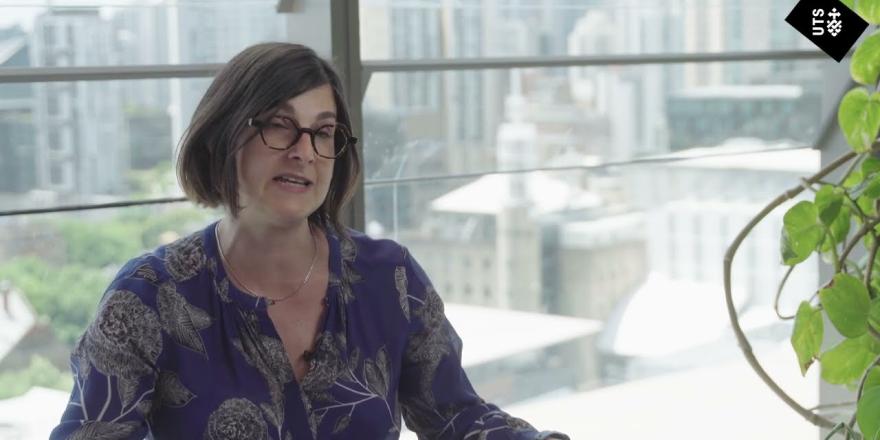Updates to the Fair Work Act 2009 (Cth) and the Migration Act 1958 set to provide better protection for migrant workers from the perils of exploitation.

Migrant workers exploited
Australia is home to more than 100,000 undocumented workers — that is, migrants who engage in work without a valid visa.
The risks to these workers are high. For years, they’ve faced wage theft, exploitation and unsafe work environments, but few have reached out for help.
“They’re terrified that if they take action to address mistreatment or exploitation at work, they will be detected by Immigration and deported,” says Associate Professor Laurie Berg, an international expert on migrant worker rights at UTS Law and the co-founder of the Migrant Justice Institute.
Those who do seek help often suffer — numerous courts have previously held that a worker’s undocumented status voids their contract of employment and associated workplace protections, leaving the small number who do bring cases against their employers without the minimum employment protections they desperately need.
Amended legislation will see better protection

Dr Laurie Berg,
Senior Lecturer, Faculty of Law
Profile page
Now, the tide is turning. In response to more than a decade of law reform research and engagement led by Associate Professor Berg and her UNSW collaborator, Associate Professor Bassina Farbenblum, the Australian Government recently amended the Fair Work Act 2009 (Cth) and the Migration Act 1958 to better protect migrant workers from the perils of exploitation.
These changes will see the reinstatement of employment protections regardless of visa status, providing a path to anti-discrimination and workers’ compensation claims for undocumented workers.
Unauthorised work will no longer be considered a criminal offence, which means employers may no longer use it to deprive workers of their rights.
“Now, when an undocumented migrant needs to make a worker’s compensation claim or access medical treatment as a result of a workplace accident, they are protected by the law,” says Associate Professor Berg.
“Employers across the country are going to realise they can no longer enjoy impunity for exploiting those undocumented workers — they now have responsibilities to those workers and liability for workers' compensation and other protections when workplace laws are breached.”
The long road to law reform
The Fair Work Act amendments were introduced in 2023. The following year, the Migration Act reforms came into being. But these achievements were preceded by a painstaking research journey towards meaningful reform that began for Associate Professor Berg more than 15 years ago.
The turning point came in 2017 with the launch of the National Migrant Worker Survey, a large-scale online survey that was designed in partnership with advocates for the migrant community.
Conducted in partnership with Associate Professor Farbenblum, the survey captured the labour market experiences of 4322 temporary visa holders from 107 countries who were working in Australia.
The findings revealed that severe underpayment was endemic and that, while 75 per cent of respondents knew they were being underpaid, they had opted not to pursue legal action. It was the hard data the researchers needed to start the final push towards law reform.
“The survey was designed to create some urgency to demonstrate the depth of the problem and the need for reform,” says Associate Professor Berg.
What followed was an extensive, multi-year engagement strategy to share the survey findings among government, parliamentary, higher education, business and community stakeholders with vested interest in labour law policy reforms.
By raising awareness of the scale of migrant worker exploitation, Associate Professors Berg and Farbenblum created an appetite for change among key powerbrokers that led to the Fair Work and Migration act reforms.
Towards a just future for migrant workers
These reforms are only the beginning. Later this year, the Australian Government is establishing a pilot of a new visa — co-designed by Associate Professors Berg and Farbenblum — that enables some migrant workers who bring legal action against an employer to remain in Australia until the legal process is complete.
First described in Associate Professor Berg’s Migrant Rights at Work, this visa has now become a reality, although more work remains to make the case for stronger protections for all migrant workers. The pilot does not yet extend to undocumented workers.
“In Australia, I think we’re very proud of our history of multiculturalism but, until now, that pride has not been reflected in our labour laws,” Associate Professor Berg says.
“It’s important to have standards of fair treatment that are enforceable in a court of law. As a nation that prides itself on the concept of fairness, these law reforms are long overdue.”

My research is designed to expose the experiences of exclusion and exploitation from migrant workers in Australia who are not otherwise seen or properly understood, and we are looking at the ways that laws and policies fail them in practice and where there's urgent need for reform.
When the national lockdown hit in during COVID in 2020, thousands of temporary visa holders lost their jobs and struggled to make ends meet. They were locked out of JobKeeper, and so we sought to document the financial insecurity caused by that government policy.
We provided that evidence base to the government and it was used by a national campaign to press for inclusion of temporary visa holders in the financial support packages, and by 2021, those government policies had been reversed.
Our research, I think, gave voice to the experiences of so many migrants that were so marginalised at that time.

